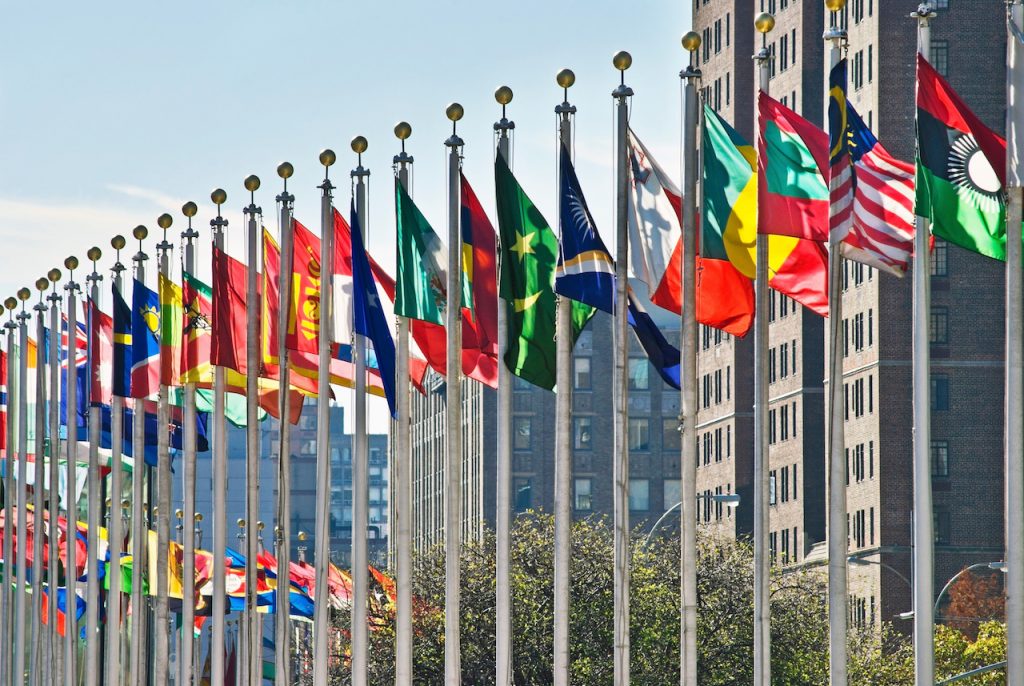Abortion groups and United Nations bureaucrats are trying to one-up the pro-life Trump administration by getting United States diplomats to endorse “sexual and reproductive health” in a UN agreement on humanitarian responses without any caveat or qualification. Using their usual bureaucratic traps and subterfuges, they are implementing their long-term strategic plan to establish international abortion rights by stealth.
For three decades, the International Planned Parenthood Federation (IPPF) and other abortion groups have partnered with various UN agencies to shoehorn “sexual and reproductive health” into humanitarian projects. During the Obama administration, they successfully included the term in a Security Council resolution. Sexual and reproductive health was also included among the commitments at the World Humanitarian Summit in 2016. Recent UN reports on this topic have all explicitly included the right to abortion access as a key dimension of this term.
As Dr. Susan Yoshihara’s research describes, the humanitarian community has resisted this push, but the pressure to promote abortion in humanitarianism work is getting stronger and stronger. Until recently, abortion was only cautiously offered for children conceived by rape. Now it is being promoted by UN bureaucrats as an essential humanitarian need in all conflicts and natural disasters.
A Bureaucratic Trap to Make Abortion a Humanitarian Right
Start your day with Public Discourse
Sign up and get our daily essays sent straight to your inbox.In 1996, the UN agencies and abortion groups that make up the Inter-Agency Working Group on Reproductive Health in Crises (IAWG) created the “minimum initial service package for sexual and reproductive health,” or MISP. They did this unilaterally, without a specific mandate to do so. Last year, the IAWG explicitly included abortion in the MISP for the first time ever. While no one doubted that the term has always included abortion in practice, the fact that it took over twenty years to get abortion explicitly mentioned in the MISP says a lot about how controversial it is. It also shows that abortion groups are willing to play a long-term bureaucratic game to get what they want.
According to IPPF, the MISP “is an internationally accepted minimum standard of care for reproductive health, pioneered and rolled out by IPPF,” and it includes abortion. The MISP is the only such minimum service package initiative of UN agencies. There is no MISP for basic needs like food, shelter, and other health necessities in humanitarian emergencies, only for sexual and reproductive health.
But what really matters is that MISP is a bureaucratic initiative, not an intergovernmental negotiated framework. Unsurprisingly, it does not reflect the international political consensus on the issue of abortion that was reached by the General Assembly at the International Conference on Population and Development (ICPD) in 1994.
The term “sexual and reproductive health” emerged in the 1990s in UN resolutions only after the ICPD added specific caveats to the use of the term and its widely understood meaning as a euphemism for abortion. These caveats excluded an international right to abortion, protected sovereign prerogatives on abortion, prohibited the UN system from promoting abortion, and protected women from the predatory international abortion industry. Many countries made further reservations to the ICPD agreement because of the term “sexual and reproductive health” and its association with abortion. The United States has echoed those reservations under Republican pro-life administrations, including in recent negotiations where the Trump administration has been involved. And in recent negotiations the administration has held strong on deleting these controversial terms, or at least preserving the ICPD caveats intact. At a very minimum, it should require analogous caveats in humanitarian agreements.
And here is the problem. Of itself, the ICPD does not address humanitarian settings, even though it applies to a host of other settings, including development, economic policy, urban planning, environmental policy, migration, and other contexts. No doubt this was agreed to deliberately in 1994, when the ICPD was negotiated because of the Helms amendment barring US funding for abortion overseas. Since the United States is the largest international financial underwriter of humanitarian efforts, these issues loom large in any debate about humanitarian responses.
And the MISP conveniently ignores the ICPD caveats entirely. Instead, the MISP proposes as an alternative framework the non-binding recommendations of unaccountable UN experts and bureaucrats who say that abortion is an international right and that states must make abortion legal and accessible. They do so even though no UN human rights treaty or international humanitarian agreement includes the topic of abortion or can be fairly read as including abortion rights. Not only is this a gross abuse of their limited authority, these recommendations clash with the caveats on the issue of abortion agreed upon by sovereign states in the ICPD agreement.
How the Trump Administration Should Respond
In its freshman year, the Trump administration was bamboozled by abortion advocates. Last spring’s annual Economic and Social Council (ECOSOC) resolution, which guides all UN humanitarian responses, not only referred to sexual and reproductive health as a “basic humanitarian need” but also endorsed the MISP (which had not yet been updated to explicitly include “abortion to the full extent of the law”). Abortion advocates at the US State Department strongly supported both.
In the General Assembly in September, the Trump administration took out the MISP from a humanitarian resolution, but it did not remove or qualify support for abortion. Still, it seems that Trump administration is moving in the right direction now, opposing any mention of sexual and reproductive health in this year’s negotiations of the ECOSOC resolution. And it should be that way.
The Trump administration must be categorical in excluding any mention of “sexual and reproductive health” in UN resolutions involving humanitarianism. This is not an impossible task, even though it will ruffle the feathers of European and Canadian bureaucrats. The Trump administration must mobilize the State Department’s vast network to achieve this with the support of other countries. Without pressure from Washington on governments around the world, the Trump administration cannot expect diplomats in New York to make any meaningful changes in UN policy.
To help rally international support for opposing “sexual and reproductive health” in UN humanitarian agreements, the Trump administration should point to several caveats on the issue of abortion that are missing from the MISP, and from recent UN agreements about humanitarianism that include sexual and reproductive health. It should be inconceivable for a pro-life administration to lend its support to an agreement that lists sexual and reproductive health as a “basic humanitarian need” alongside food, water, and shelter.
The only way the Trump administration can accept the term in a UN agreement is if it is defined to exclude abortion, or if the agreement includes caveats that reflect and expand existing consensus about these controversial terms from the ICPD agreement. Such caveats must reiterate that abortion is not a humanitarian right, that donor states need not fund abortion as part of humanitarian responses, that humanitarian responders must respect the pro-life laws of countries in which they are working, that humanitarian response efforts must first and foremost provide support services to help women avoid abortion, and that UN agencies and international humanitarian efforts must not discriminate against humanitarian groups on the basis of their religious or moral opposition to abortion.
This is especially important in light of how some humanitarian groups like Doctors Without Borders and abortion groups like Planned Parenthood, Marie Stopes, and Women on Waves provide abortions even where they are illegal. This undermines humanitarianism and good faith in international humanitarian efforts. It is highly controversial and endangers the lives of humanitarian responders.
The Moment of Truth
Negotiations on the 2018 ECOSOC resolution on humanitarianism are happening now. An outcome is expected before the annual ECOSOC Humanitarian Segment next month.
The stakes are higher than ever for the pro-life cause internationally. The Trump administration must continue to push the United Nations to respect U.S. sovereign prerogatives not to support abortion in humanitarian responses. It must not give abortion groups a pass to continue to implement their covert strategy to establish an international right to abortion. Some UN bureaucrats still think the US State Department’s pro-life position is merely a political stunt to appease pro-life US voters, and that in the end the administration will turn a blind eye to the bureaucratic stratagems of the abortion industry. They must be proved wrong.
If the Trump administration accepts an agreement that mentions sexual and reproductive health in the humanitarian context, without the caveats it has fought for in other contexts, it will all but waive the possibility of opposing abortion in the future with any credibility. It will also mean that the United States’ positions at the UN are being dictated by EU and Canadian bureaucrats rather than the American people who elected President Trump.
The views expressed in this article are the author’s and are not necessarily the views of C-Fam.













